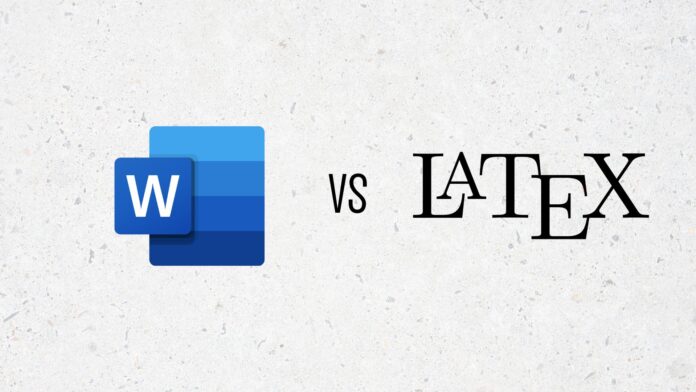The world of academic writing can feel overwhelming, and the tools you choose can significantly impact your experience. Two titans in this arena are MS Word and LaTeX, each offering distinct advantages and posing unique challenges. This article, iLovePhD explains the difference between MS Word vs LaTeX debate to help you pick the champion for your PhD thesis.
MS Word vs LaTeX: Which is Better to Write Your PhD Thesis?
Let’s discuss the difference between MS Word vs Latex to write your research paper, thesis, assignments, and more.
Microsoft Word: The Familiar Choice
For many, MS Word is a household name synonymous with user-friendliness. Its WYSIWYG (What You See Is What You Get) interface lets you see the final formatted document as you type, making it perfect for beginners. With its vast features for formatting text, adding images, and creating tables, Word offers impressive versatility for various documents, from simple letters to complex reports.
Another big plus for Word is its compatibility. .docx files can be effortlessly shared and opened by anyone, making it the go-to choice for collaborative work in many academic settings.
LaTeX: Precision and Professionalism
If you crave unparalleled typesetting quality and precise control over formatting, then LaTeX is your knight in shining armor. While it has a steeper learning curve compared to Word, LaTeX excels in crafting high-quality documents, particularly for technical and scientific writing such as research paper writing, thesis, formulas, and so on.
LaTeX shines when dealing with complex documents like academic papers, theses, and books, where consistent formatting and layout are paramount. Mathematical typesetting is another area where LaTeX reigns supreme, making it a favorite in fields like mathematics, physics, and engineering. Additionally, LaTeX files being plain text makes them ideal for version control systems like Git, a boon for collaborative writing and change tracking.
Choosing the Right Tool for You
The MS Word vs LaTeX decision hinges on your specific needs and comfort level. If ease of use and compatibility for general documents are your priorities, Word is the way to go. However, if you demand precise typesetting control, especially for technical or academic writing, LaTeX is the preferred champion.
Some PhD students even adopt a hybrid approach, using Word for initial drafting and then switching to LaTeX for final formatting. Ultimately, the best choice depends on your unique workflow and preferences.
Highlight: MS Word vs LaTeX
- Microsoft Word: User-friendly and compatible, ideal for general documents and collaborative work.
- LaTeX: Precision typesetting and mathematical prowess make it a favorite for technical and scientific writing.
- Decision Time: Prioritize ease of use with Word or opt for precision with LaTeX, based on your needs.
- Best of Both Worlds: Combine Word for drafting and LaTeX for formatting to optimize your writing process.
Conclusion
In the digital writing age, selecting the right tool is crucial for academic success. Both MS Word and LaTeX offer distinct advantages, catering to user-friendliness or precision typesetting. By understanding their strengths, you can make an informed decision that enhances your writing process and elevates the quality of your PhD thesis. So, whether you choose the familiarity of Word or the precision of LaTeX, rest assured that both tools are invaluable assets in your academic writing journey.


